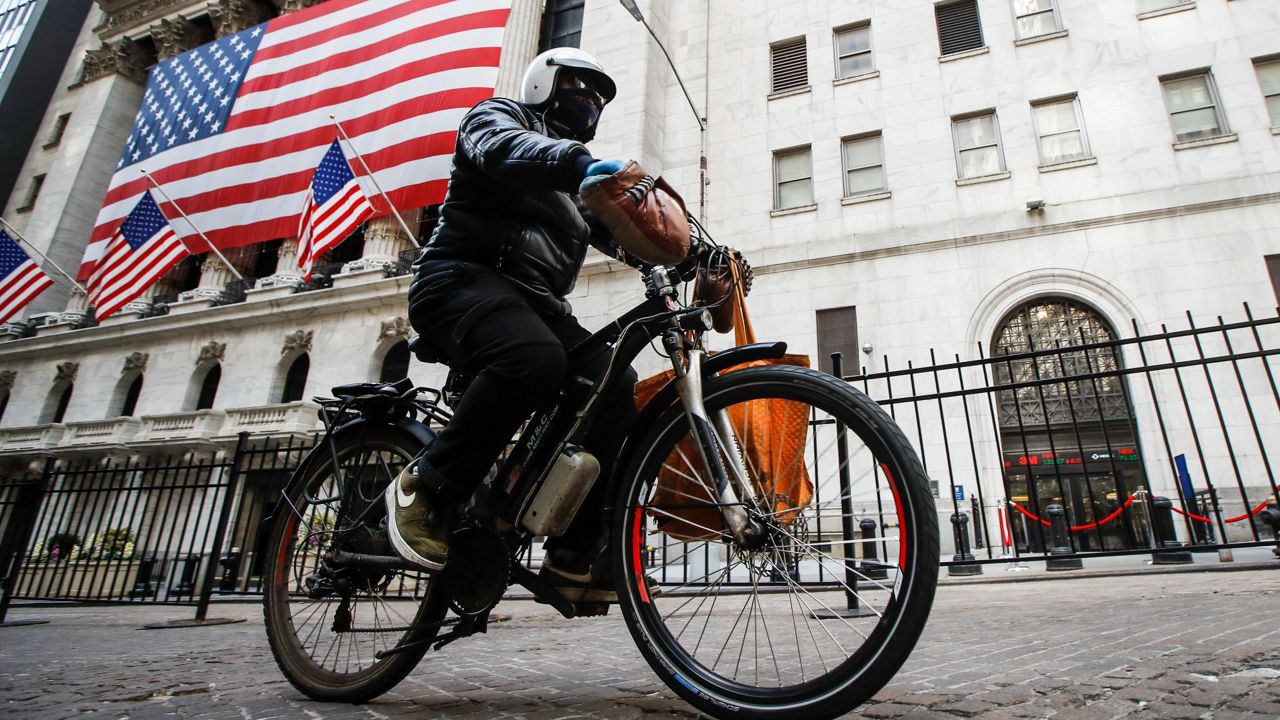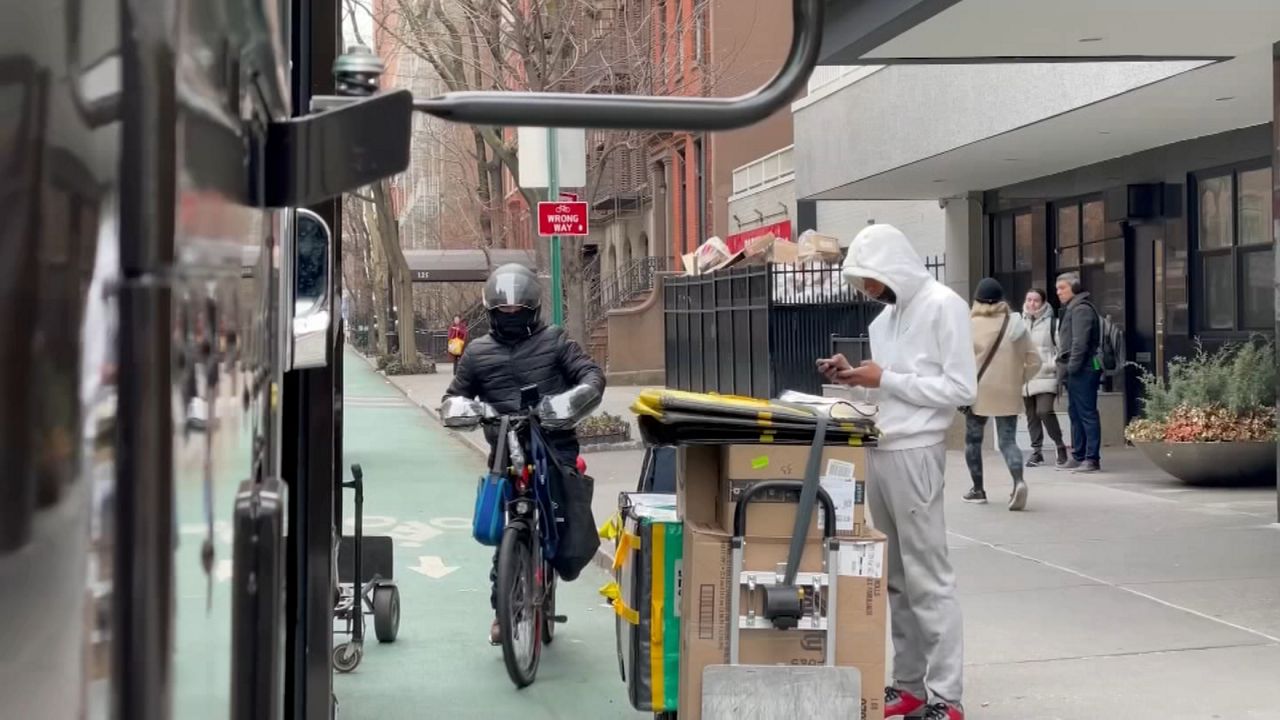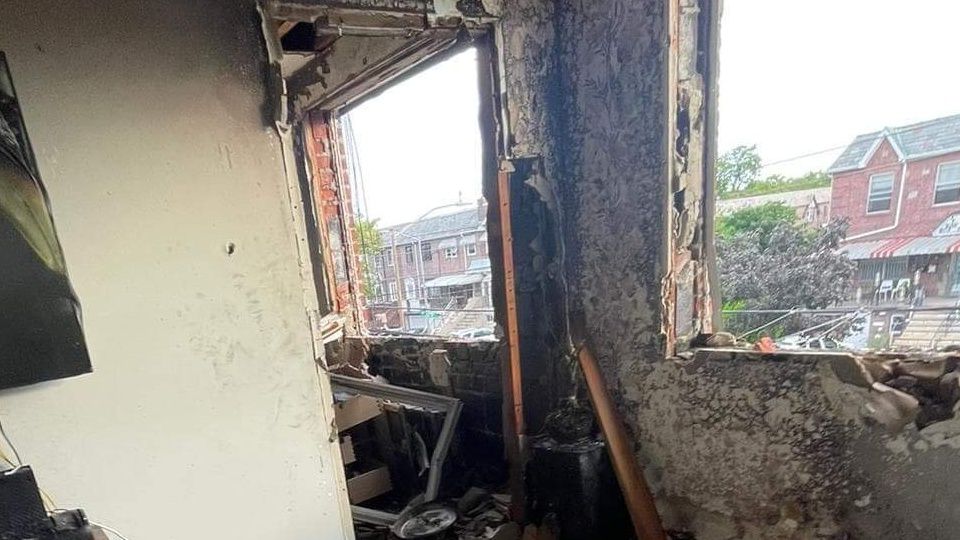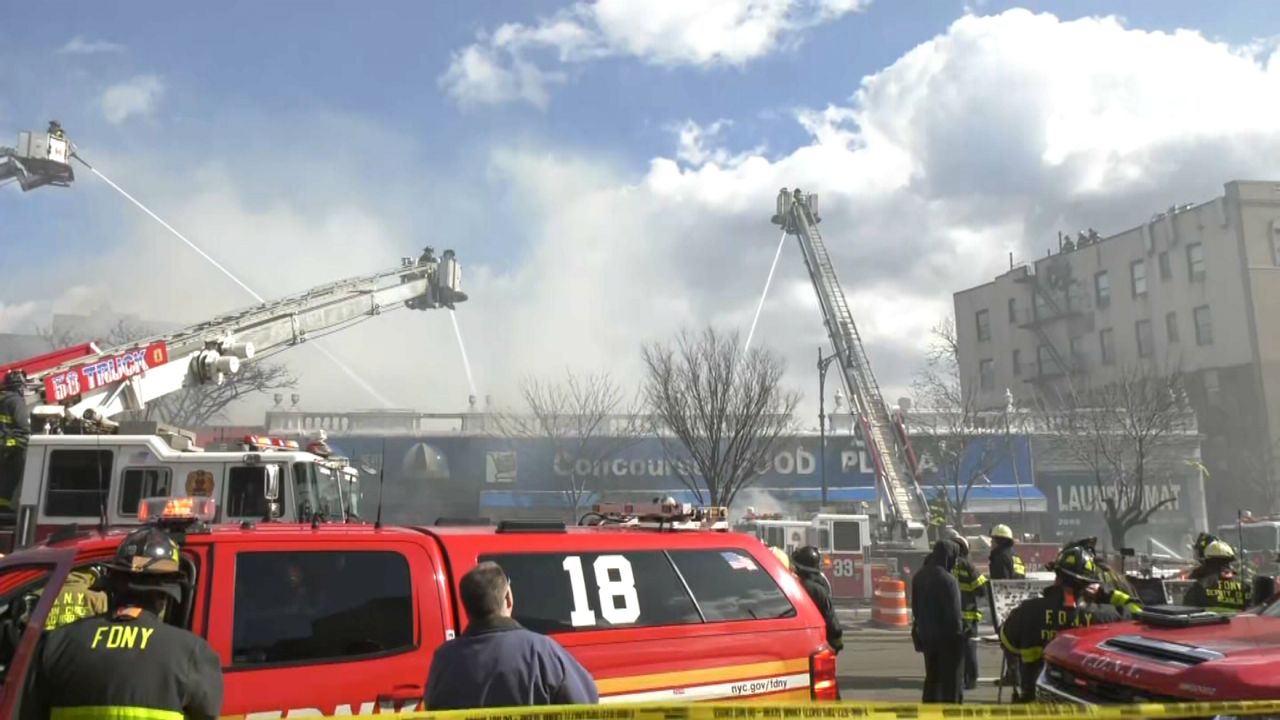Gustavo Ajche hits the streets battling city traffic in all kinds of weather.
He’s a deliverista — a delivery worker — who relies on an e-bike to make deliveries for GrubHub and DoorDash. He says during the pandemic, many delivery workers were forced to switch from traditional bicycles to e-bikes.
“Food delivery work. It's a dangerous job,” Ajche said. “A lot of places was closed around the area. So you have to travel long-distance, 40 blocks, 30 blocks, 20 blocks to drop a delivery. So by the end of the day, if you're using a regular bike, it's really tough and hard for workers."
What You Need To Know
- Longtime delivery worker Gustavo Ajche says during the pandemic, many deliveristas turned to e-bikes to keep up with the demand
- Ajche says most deliveristas own their e-bikes, and are responsible for the upkeep of the batteries
- Ajche says a new e-bike costs around $2,500 — and a good battery starts at $700
- According to Los Deliveristas Unidos, a labor group representing 65,000 app-based delivery workers, fewer than 10% of the e-bikes sold in the city meet the city's new stricter safety standards
The bikes, which are powered by lithium-ion batteries, add another risk to an already dangerous job.
The batteries have sparked dozens of fires so far this year, killing five people. Ajche says most deliveristas own their e-bikes, and are responsible for the upkeep of the batteries. They take them home at night to charge because there are no other options, knowing now, they’re putting their families at risk.
“We're really concerned about all these fires happening everywhere,” Ajche said.
In March, Mayor Eric Adams signed laws creating stricter safety standards for e-bikes sold in the city. But according to Los Deliveristas Unidos, a labor group representing 65,000 app-based delivery workers, fewer than 10% of the e-bikes sold in the city meet those standards.
Advocates say delivery workers won't able to afford any required upgrades until the city guarantees minimum pay for the delivery workers, who rely heavily on tips.
“So deliveristas don't have to work long, extensive hours, take the risk of traveling long distances, and have to make a huge investment in order to transition to buying safer batteries in the city of New York,” said Ligia Guallpa, the executive director of the Workers Justice Project.
In fact, many have to bring two fully charged batteries to work to make it through what often turns into a 12-hour shift. Ajche says there is no going back to a traditional bicycle.
“We have to create programs to support workers, too, because it's not easy just to force people say, hey, this bike is not allowed to use. You got to get a new one. So it's a lot of money, it's not cheap,” Ajche said.
Ajche says a new e-bike costs around $2,500, and a good battery starts at $700. Those high costs have created a gray market for cheaper, off-brand, unregulated and refurbished batteries, but Ajche says those deals are playing with fire.









